Portage jury weighs insanity plea for Suffield man who stabbed wife on Valentine's Day
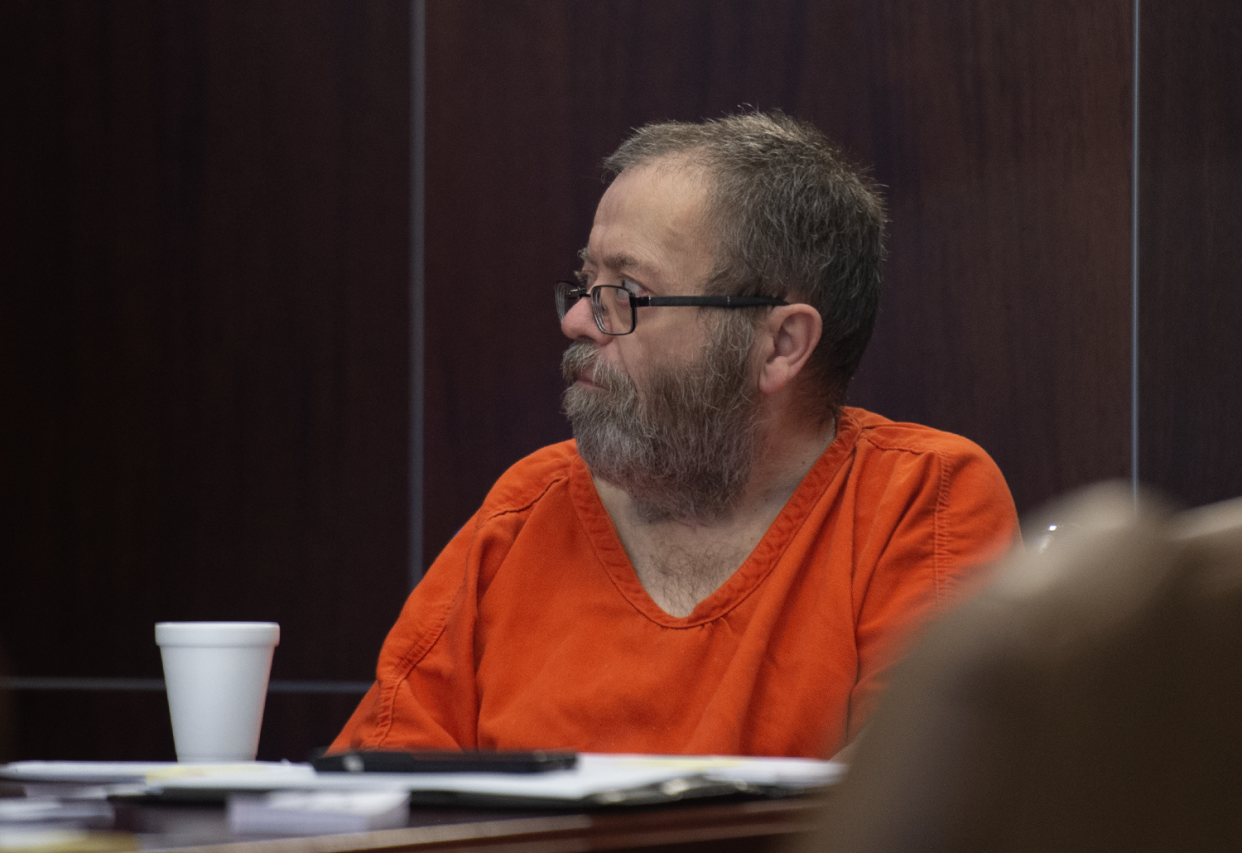
Did a Suffield man suffer a psychotic episode when he stabbed his wife to death on Valentine's Day nearly two years ago, or is he lying about his state of mind after committing the murder for selfish reasons?
Attorneys offered their closing arguments in Portage County Common Pleas Court Wednesday in the case of Donald Ray Small Jr., 61, who killed his wife, 55-year-old Barbara Ann Small, at their Winterhaven Drive home during the night of Feb. 14, 2022.
That Small stabbed his wife to death, then covered her body in a blanket and confessed to police were not in dispute. Rather, Small claims a temporary psychotic episode brought on by Parkinson's Disease caused him to kill his wife. He is claiming to be not guilty by reason of insanity.
Small is charged with two felony counts of murder and second-degree felony assault. One of the murder counts includes a specification that the alleged offense was in conjunction with an assault and one of the assault charges includes a specification that it was with a knife, a "deadly weapon."
More: Portage jurors to decide whether man with Parkinson's was sane when he killed his wife
Closing arguments came after a more than a week of testimony by 20 witnesses. Prosecutors called a dozen, including a medical professional, police and others, while the defense called eight, including Small's pastor, family friends and a neurologist expert on Parkinson's, a pharmacologist and a neuropathologist.
According to the National Institute on Aging, Parkinson's Disease is a brain disorder that causes unintended or uncontrollable movements, such as shaking, stiffness and difficulty with balance and coordination. Patients may also suffer also mental and behavioral changes, sleep problems, depression, memory difficulties and fatigue.
Psychotic episodes can be a side effect of certain drugs used to treat the disorder, according to the National Institute of Health.
'Pretending' to be insane
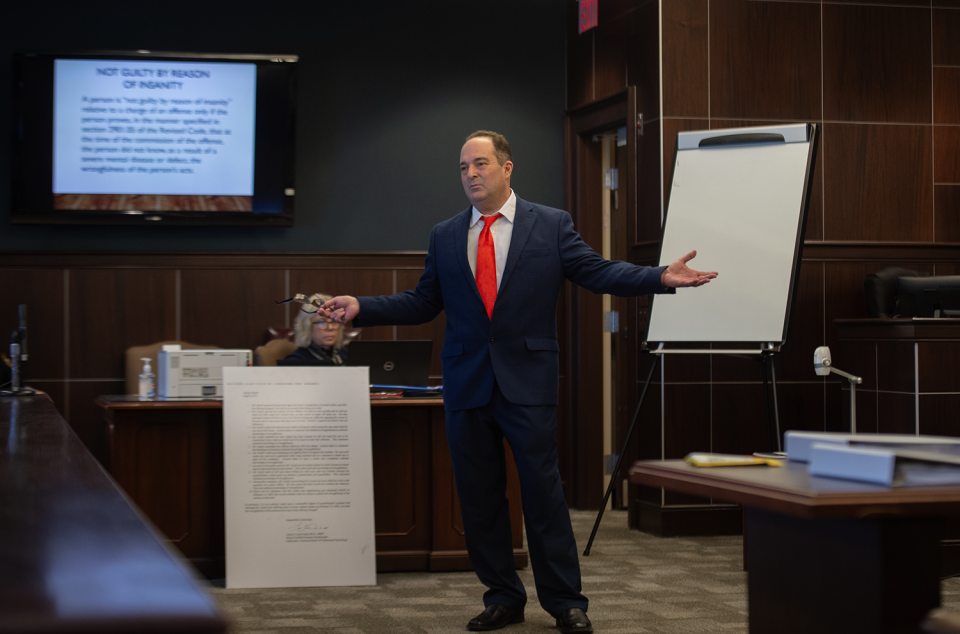
Prosecutor Stephen Michniak said Small gave no indication he was susceptible to psychotic episodes prior to the death and noted Small worked 60-hour weeks at Solon-based Swagelock, indicating he was able to function normally despite his disease.
He also described Barbara Small's death in her bedroom in graphic detail.
"The man she most trusted in her life, the love of her life, was brutally attacking her, plunging the kitchen knife into her neck," he said.
He then explained the basis for the murder and assault charges and noted it was up to Small and his defense attorneys to prove their insanity defense by showing he was not competent at the time of the killing.
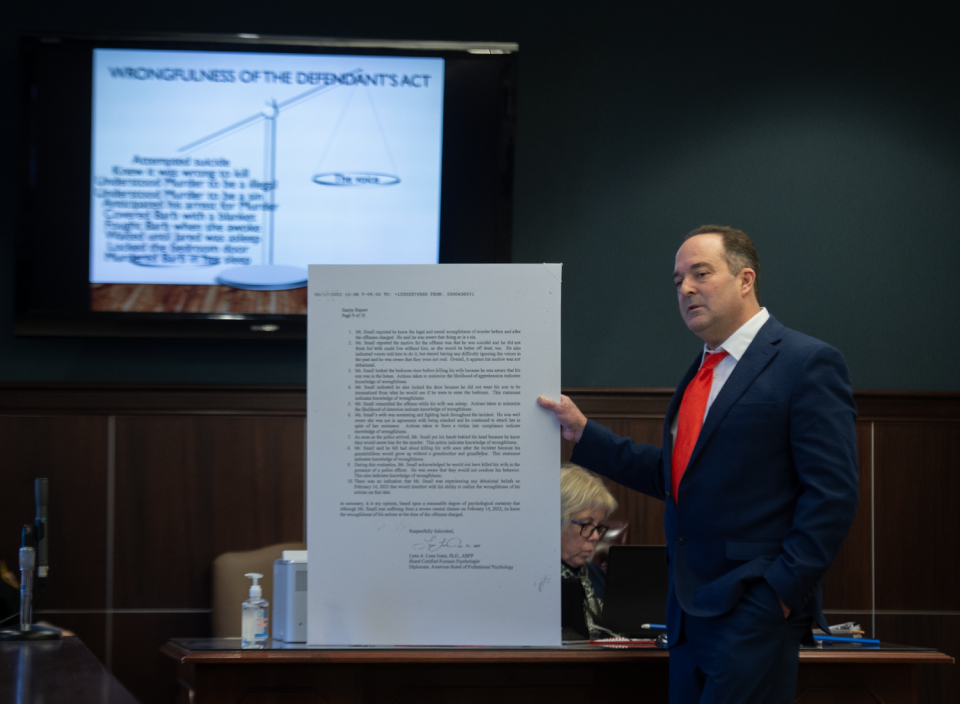
"The burden isn't on me to show that he was sane," he continued. "The burden shifts to the defense team and the defendant to prove by a preponderance of the evidence that the defendant is not, for that reason, is not guilty."
He also said evidence shows Small was not psychotic at the time, holding up a poster-sized reproduction of a report by a forensic pathologist who concluded that at the time of the killing, Small had known what he was doing was wrong.
In addition to several statements Small had made showing he knew killing his wife was wrong, the pathologist stated Small had said he was suicidal and that he did not think his wife could live without him, so she would be better off dead as well.
"He locked the door because his son was in the house," Michniak said. "He's not in some state of psychosis; he knows what he's doing ...
"Mr. Smalls wife was screaming and fighting back throughout the incident ... yet, he continued to attack her despite her resistance."
He said Small covered his wife's body with a blanket to hide the gruesome sight, an assertion countered by defense attorney Maxwell Hiltner, who claimed Small had in his psychosis thought his wife was cold.
'Preponderance of evidence'
Before explaining why Small should not be held accountable, Hiltner accused prosecutors of focusing on the murder's gruesome aspects. He said the defense is not required to prove Small was insane beyond a reasonable doubt, but by a lesser standard, a preponderance of evidence.
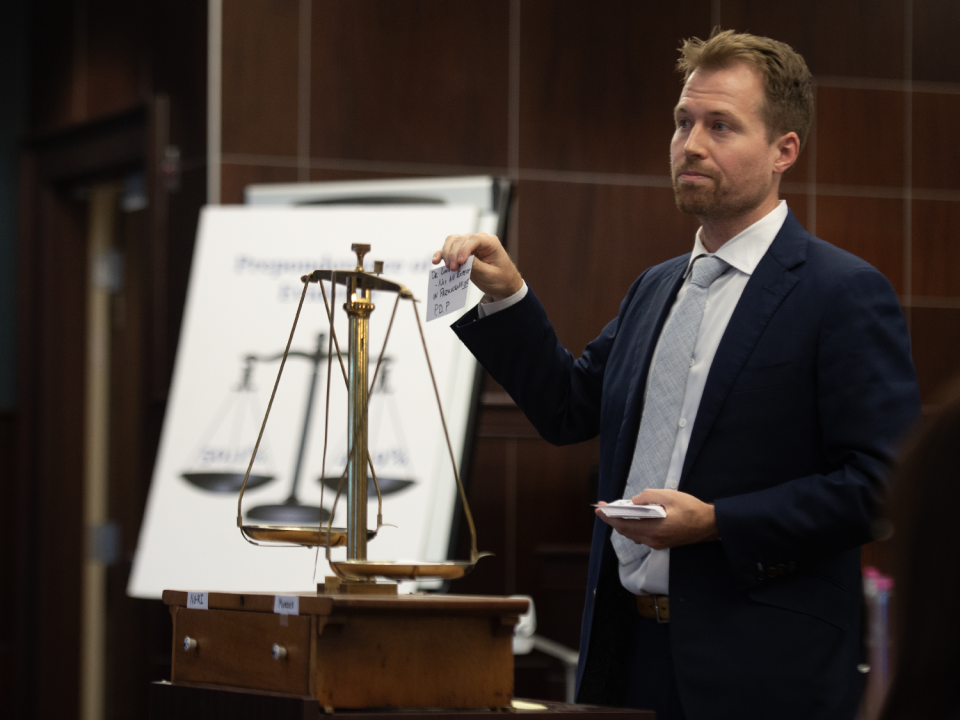
He then leveled the trays of a scale of justice-type balance on a podium iun front of the jury box.
Describing the prosecution's case, he placed a half-dozen-or-so index cards, one at a time, on one side of the scale.
After that, and for the next 20 minutes, he proceeded to place cards on the other side of the scale, with details in Small's defense until the scale weighed fully in Small's favor.=
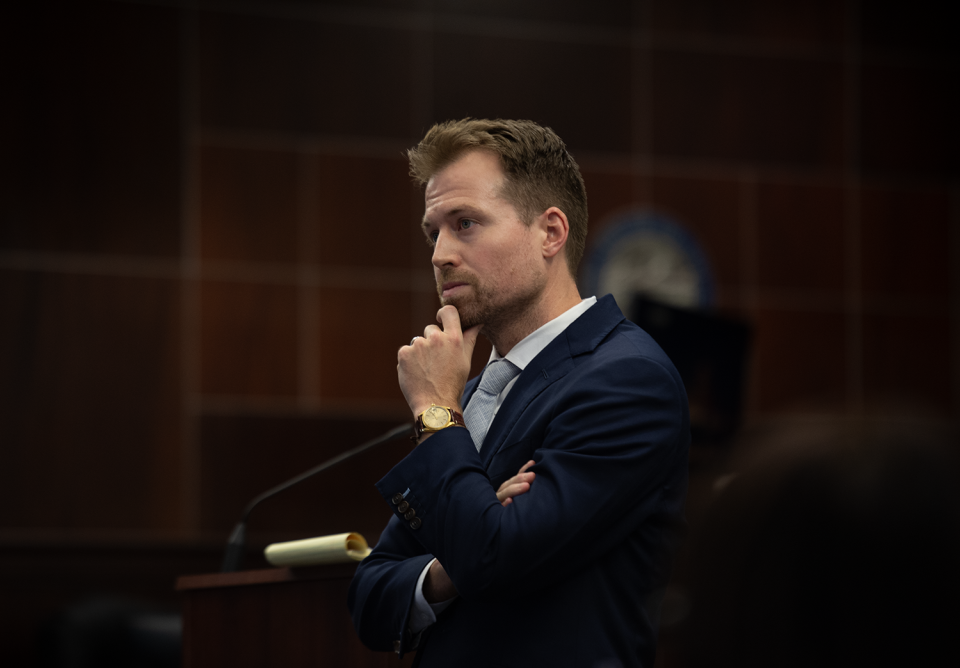
He mentioned the testimony of family friends, who he said told detectives, "There's no way Donnie did this. Donnie Small was not capable of doing something like this. No way. Not Donnie. Not a chance."
He also said there is a likelihood medicine Small was taking could have caused psychosis.
"Medicine can make people crazy," he said, accusing investigators of only focusing on conviction, as opposed to "why" the crime had occurred.
"Any statement they got from the kids and the family wasn't going to help their case," he said. "Their job is to get the conviction ... They didn't want to hear about medication.
"They didn't want to hear how he worked every day of his life and how for 60 years the guy never broke the law."
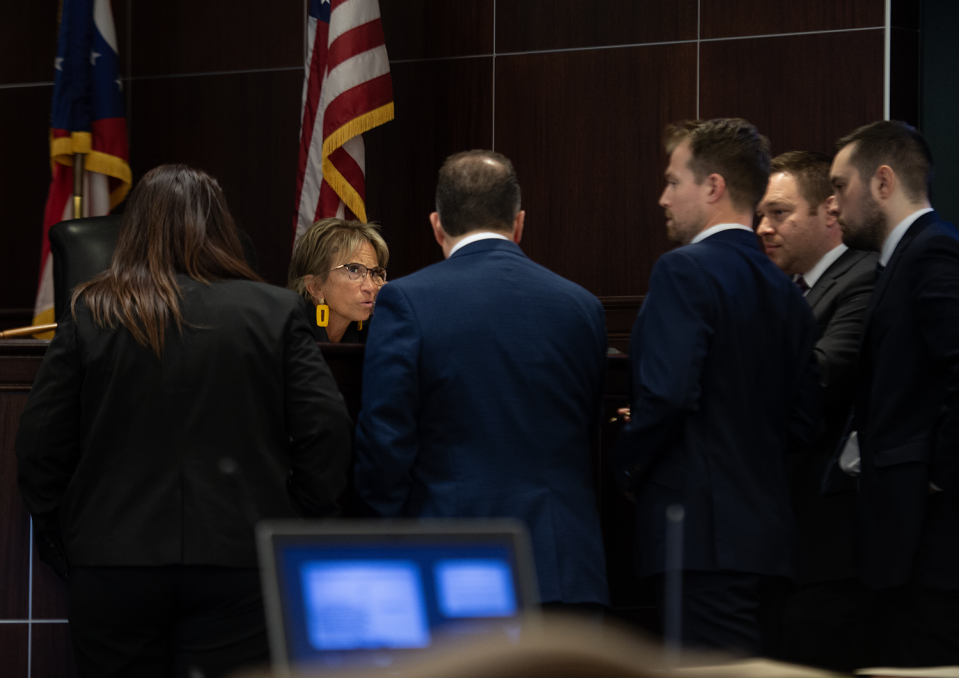
He again accused prosecutors of rushing to judgment.
"Their job was to convict, to hammer down the nail," he said. "You don't have to treat Donnie like this. Small has been plagued by this this false narrative for almost two years now."
Prosecutor Mary Beth Kiah made a final statement.
"This idea that just because someone was a good man − and I think prosecutor Mishniak said it many times and we're not disputing that he might have been a good man, that he worked hard, that he loved his family, − but he decided that he was going to kill her," she said.
Wednesday's session ended with Common Pleas Court Judge Becky Doherty reading the jury instructions for their deliberations, which begins Thursday.
Eric Marotta can be reached at emarotta@gannett.com.
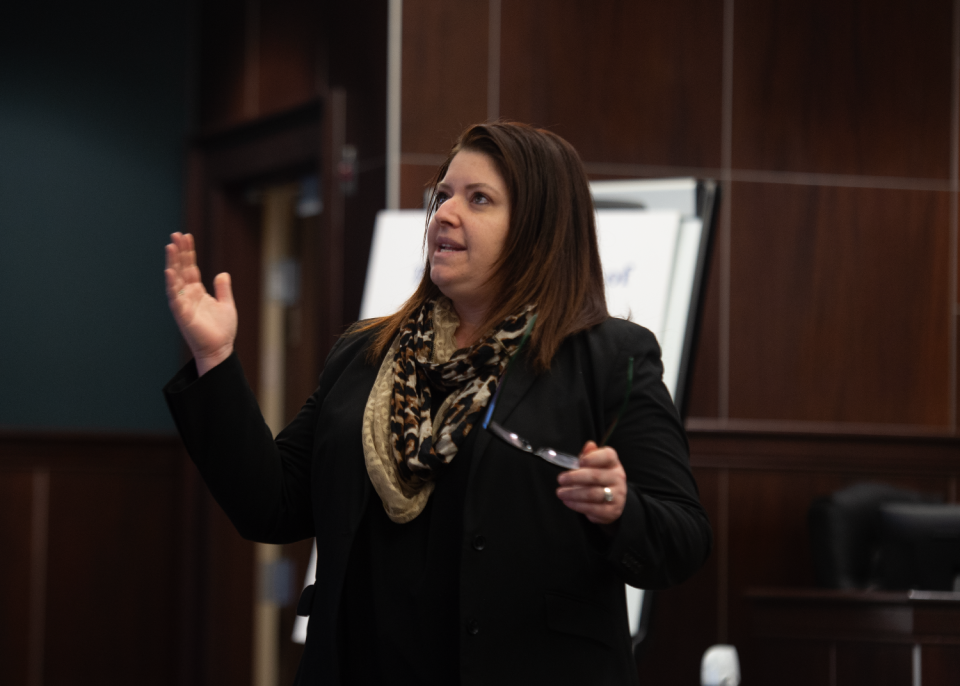
This article originally appeared on Akron Beacon Journal: Jury weighs insanity plea of Donald Ray Smith Jr. in wife's murder

